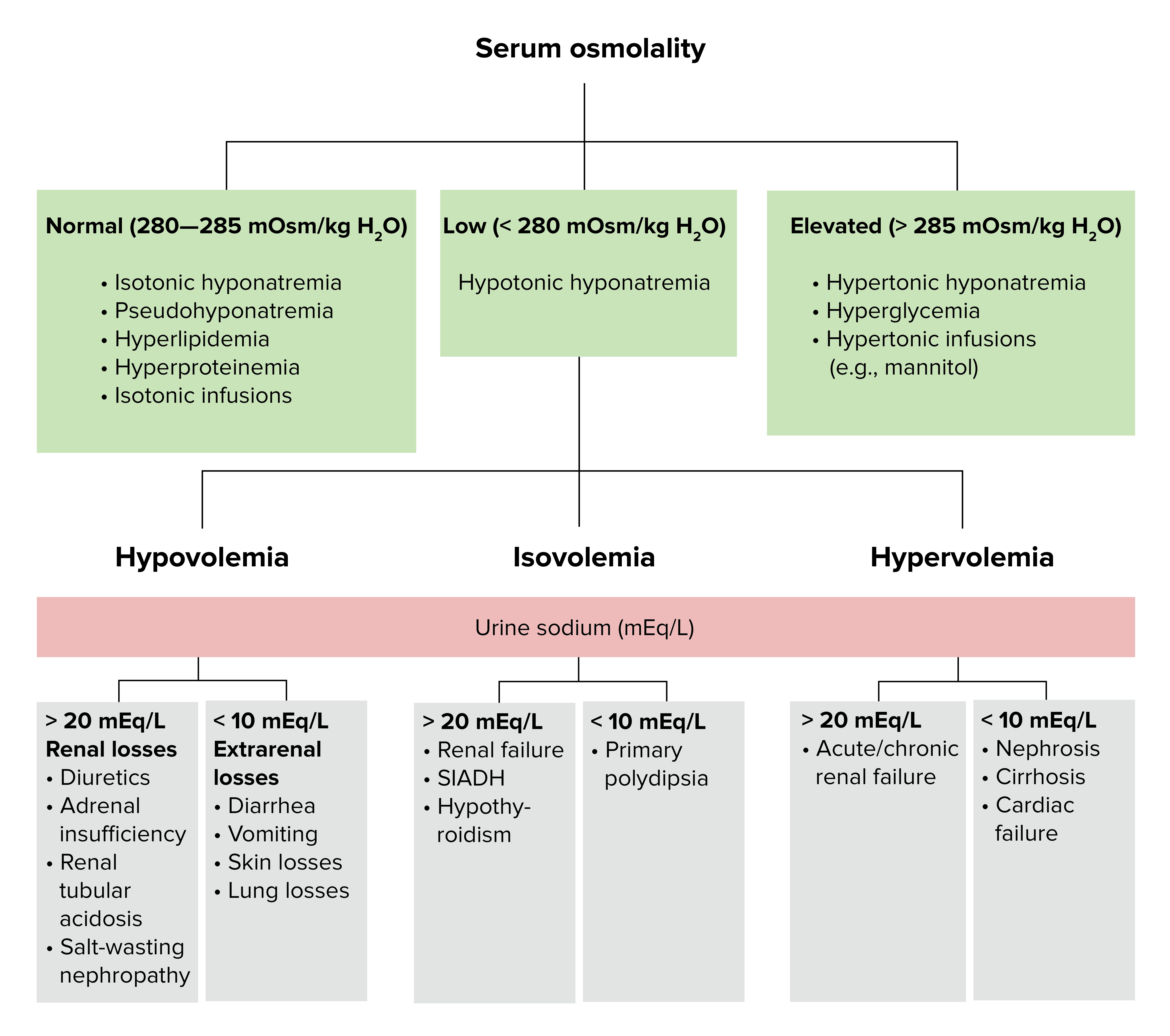Playlist
Show Playlist
Hide Playlist
Syndrome of Inappropriate ADH (SIADH)
-
Slides 01-02-01 Adrenal Pituitary.pdf
-
Reference List Endocrinology.pdf
-
Reference List Pituitary and Hypothalamic Disorders.pdf
-
Download Lecture Overview
00:01 The syndrome of inappropriate ADH secretion. 00:04 This arises when there is excess ADH release. 00:07 ADH causes excess water retention by the kidneys and can lead to a dilutional hyponatremia. 00:14 What you will notice when checking the electrolytes on these patients is that their sodium levels are decreased below normal, you know, usually well below the normal 140 range. 00:26 Causes of ADH release are numerous. 00:29 Central nervous system disorders which can include brain metastases, or brain infections like meningitis, as well as strokes and cerebral infarcts, and head trauma can all cause excess ADH release from the posterior pituitary. 00:47 Another cause of ectopic ADH release is pulmonary disease. 00:52 Patients who present with lung cancer or even pneumonias can manifest hyponatremia based on the fact that ADH is released. 01:02 And then finally, pituitary surgery, usually three to seven days post-op, excess ADH, inappropriate ADH release can be noted. 01:13 The diagnosis is usually made when measured plasma and urine osmolarity give you an indication of what the patient's volume status is. 01:22 ADH will usually cause a dilutional hyponatremia because of excess water retention, and this will be manifest by differences in urine osmolarity and plasma osmolarity. 01:35 The treatment of these patients consists of fluid restriction, which will improve the hyponatremia. 01:41 If patients are symptomatic or if the sodium is less than 110, hypertonic saline should be given. 01:48 But please remember, this should be done very slowly. 01:51 Excessively rapid correction of low serum sodium can relead to irreversible brain changes known as central pontine myelinolysis.
About the Lecture
The lecture Syndrome of Inappropriate ADH (SIADH) by Michael Lazarus, MD is from the course Pituitary and Hypothalamic Disorders.
Included Quiz Questions
Which of the following carcinomas is most likely to cause syndrome of inappropriate antidiuretic hormone secretion (SIADH)?
- Lung carcinoma
- Gastric adenocarcinoma
- Renal cell carcinoma
- Squamous cell carcinoma of the skin
- Papillary carcinoma of the thyroid
Customer reviews
5,0 of 5 stars
| 5 Stars |
|
5 |
| 4 Stars |
|
0 |
| 3 Stars |
|
0 |
| 2 Stars |
|
0 |
| 1 Star |
|
0 |




